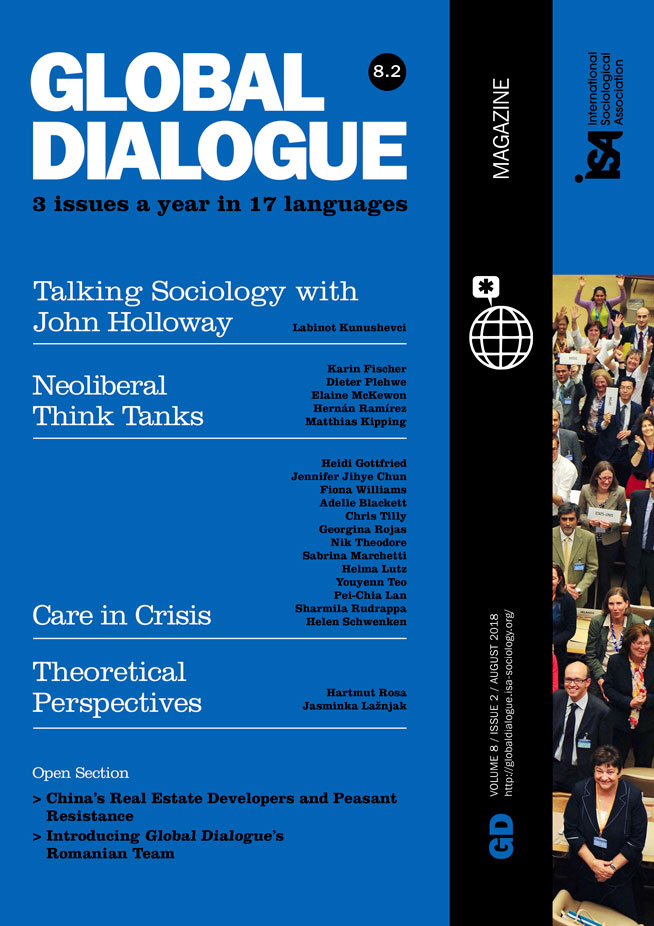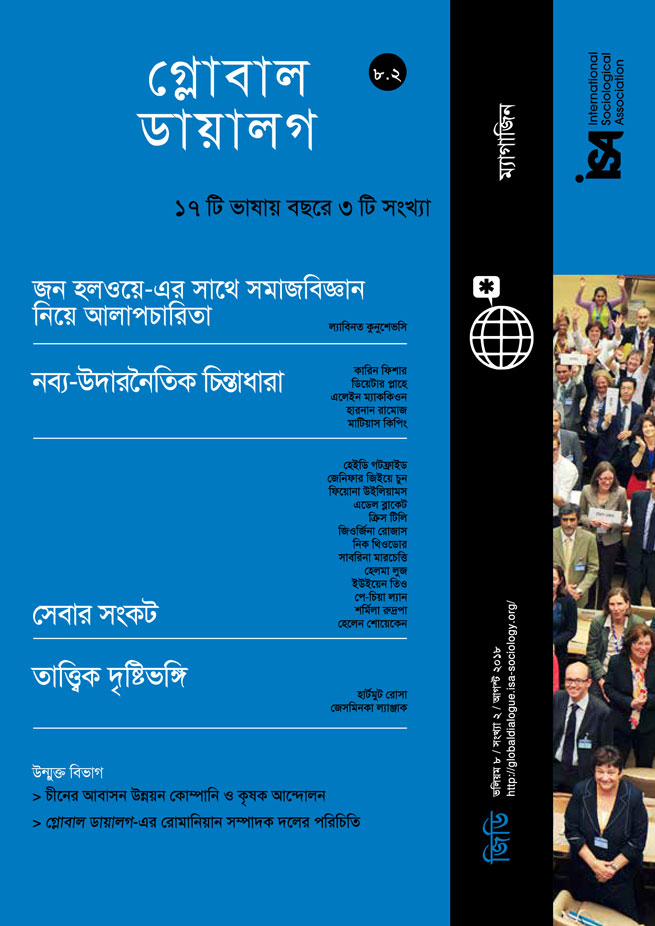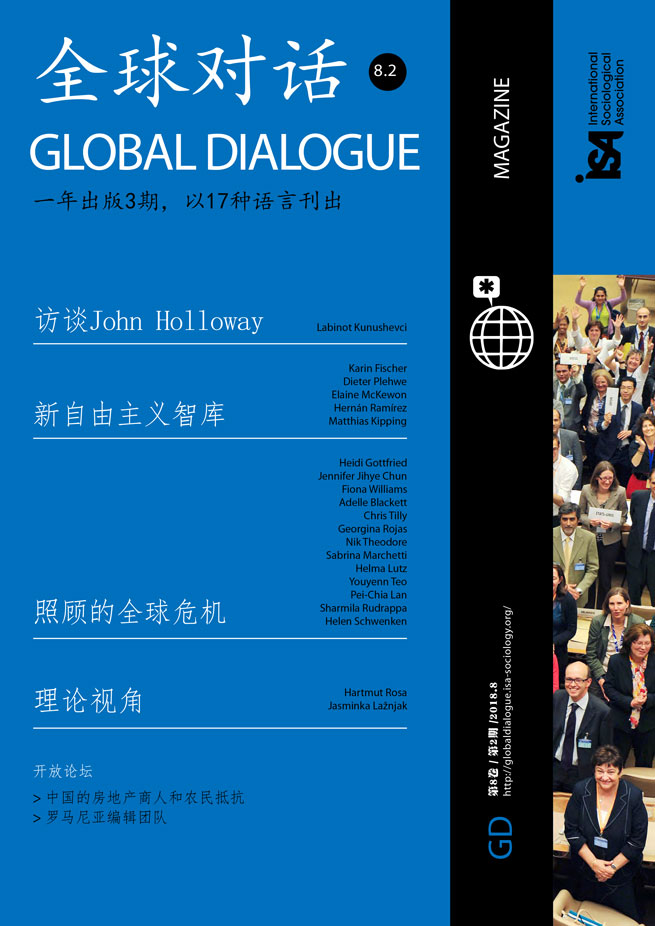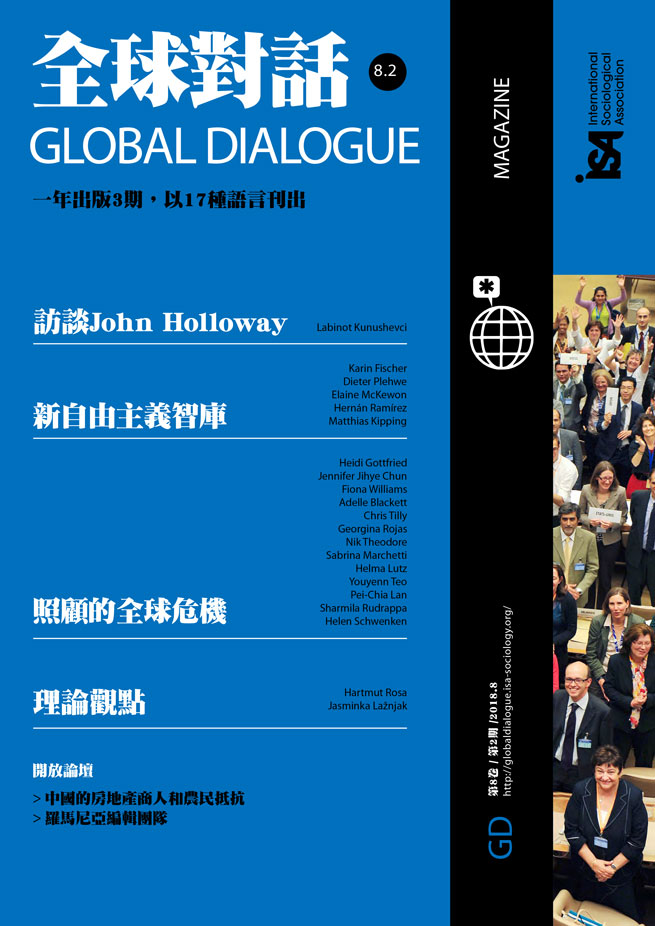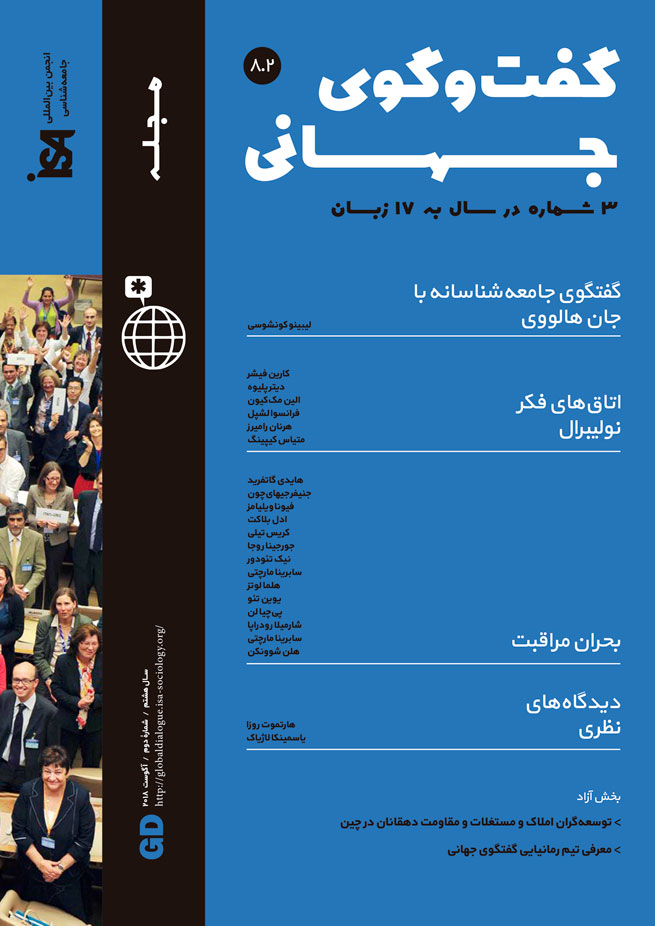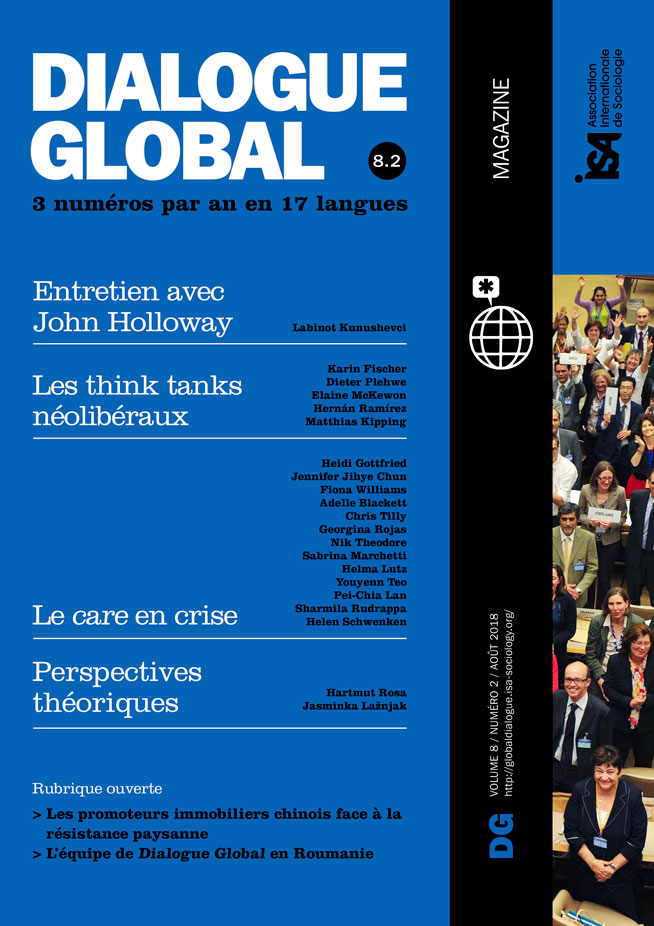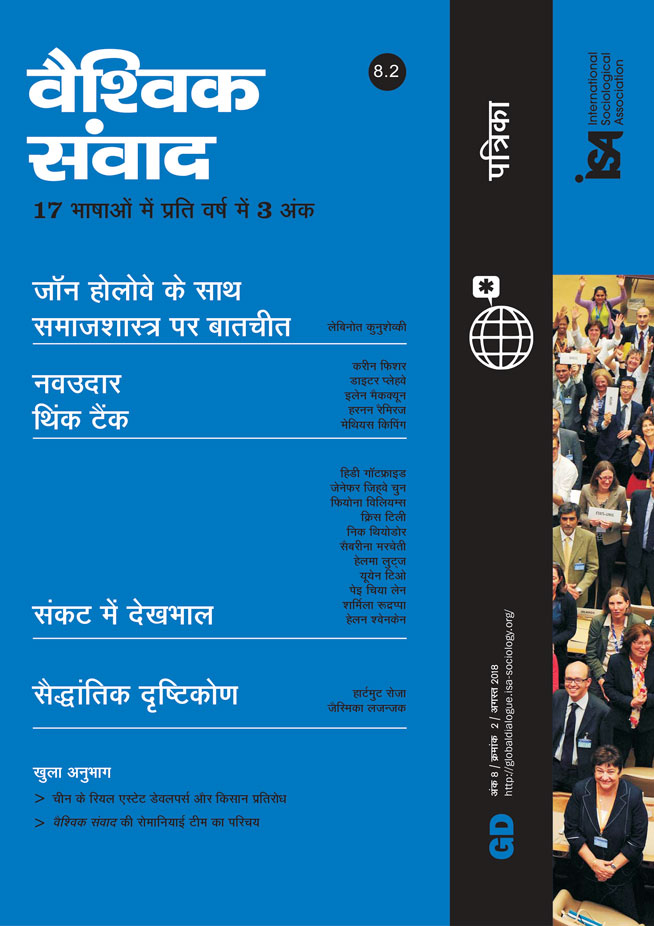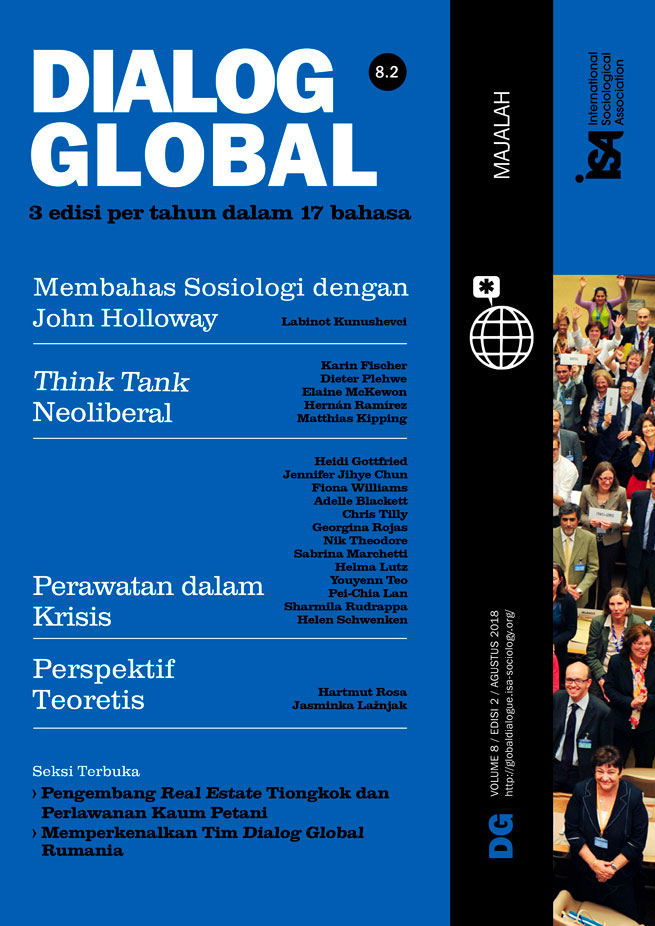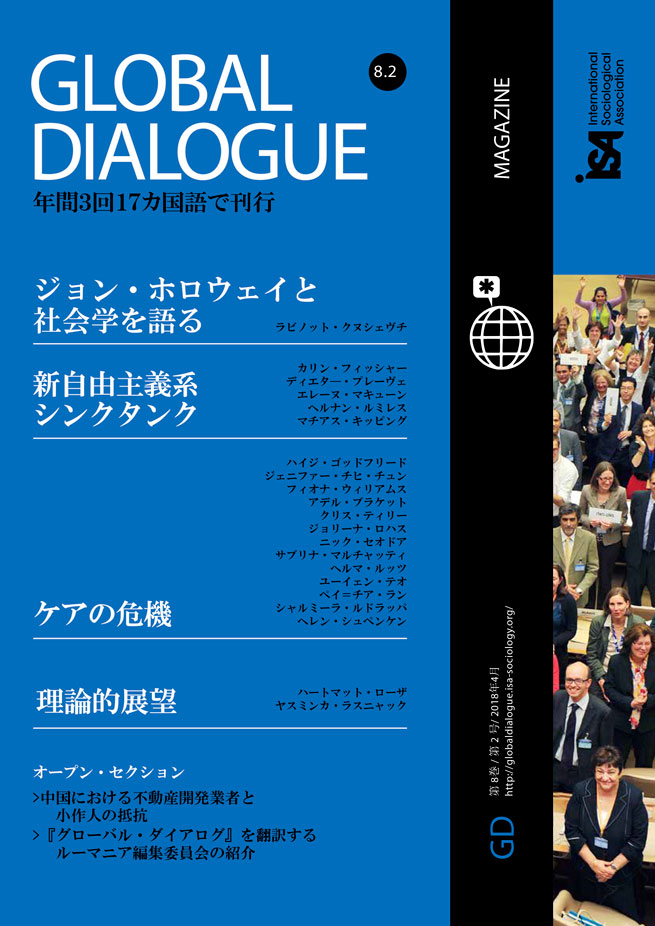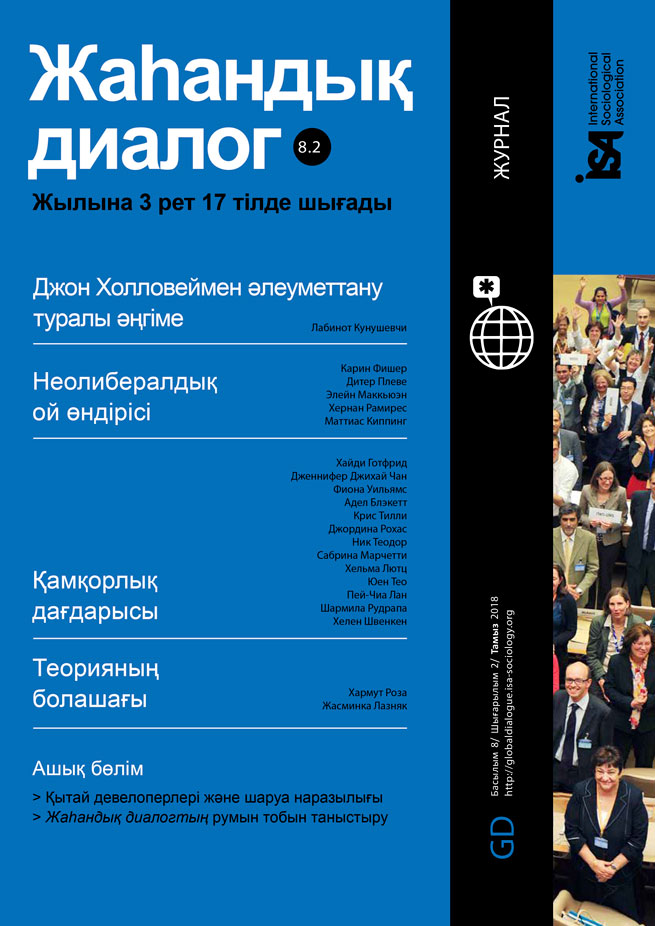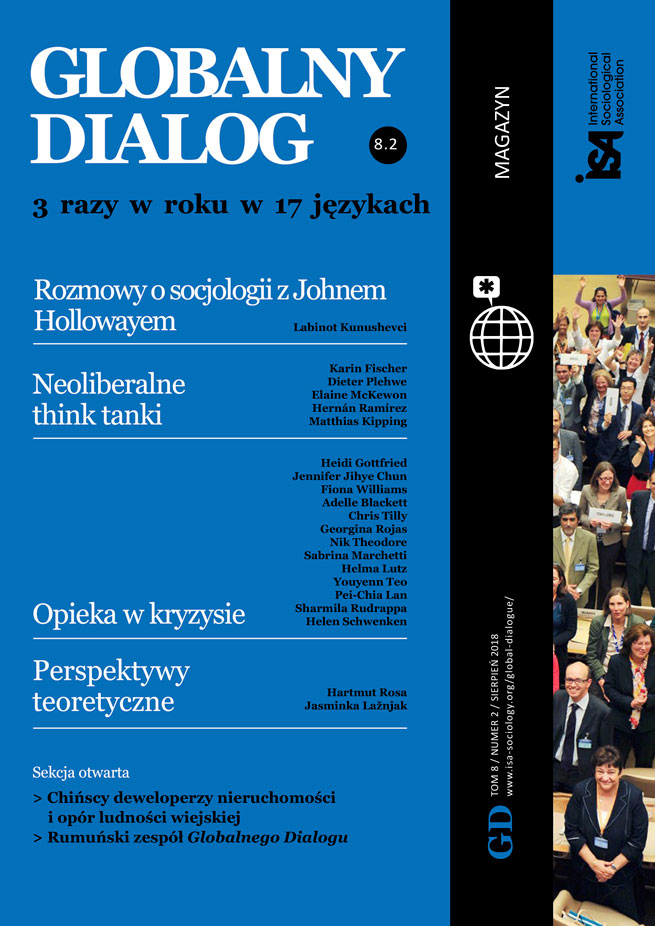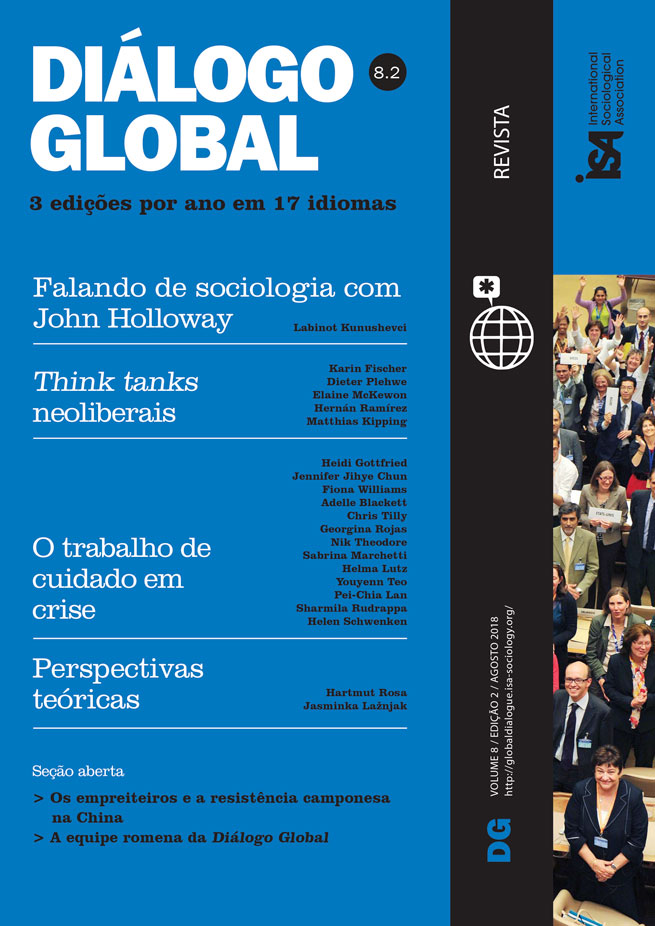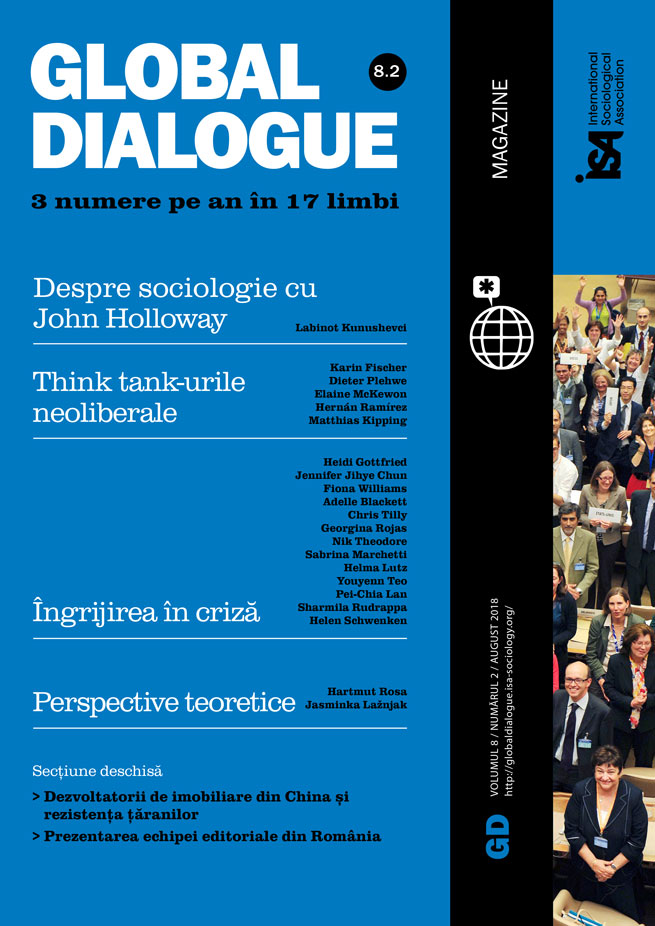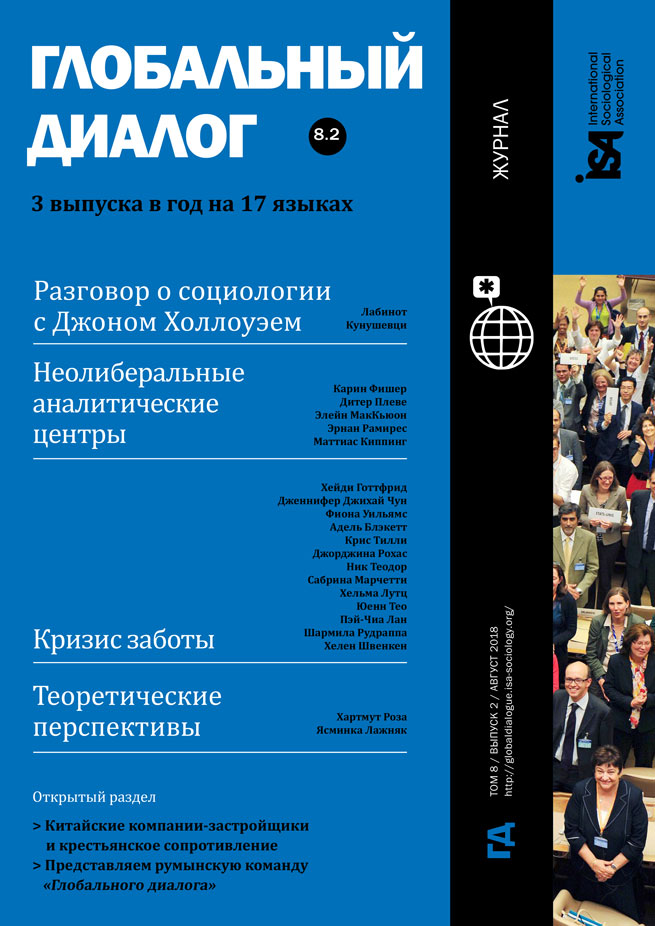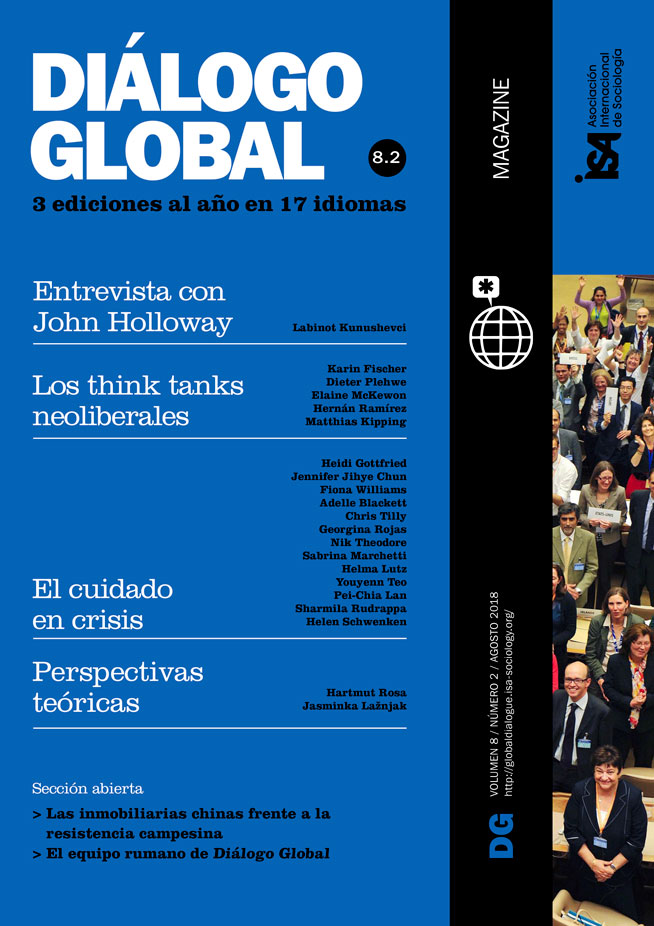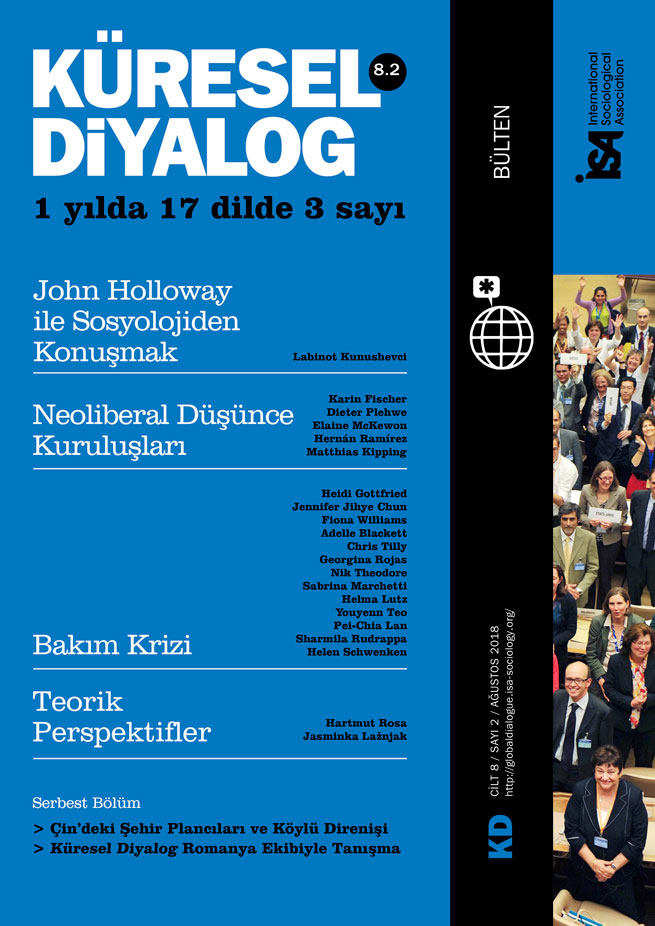Read more about Theoretical Perspectives

The Idea of Resonance as a Sociological Concept
by Hartmut Rosa
July 09, 2018
Jasminka Lažnjak is well known in the field of sociology of science and technology, social aspects of innovation and innovation policy, economic sociology, sociology of work, and other fields. She is Professor of Sociology in the Department of Sociology at the University of Zagreb, Croatia, and current president of the Croatian Sociological Association (CSA). Her most recent book, co-authored with Jadranka Švarc, is Innovation Culture in Crony Capitalism. Does Hofstede’s Model Matter? (2017). This interview is part of a project on influential social theory that also aims to explore the intersection of international and national sociology through conversations with prominent sociologists. It was conducted by Labinot Kunushevci, ISA Junior Sociologists Network associate member, who holds an MA in Sociology from the University of Pristina, Kosova.
LK: What can you say from your experience at the University of Zagreb and in the Croatian Sociological Association (CSA)?
JL: Although the status of professional associations has changed recently in terms of legal regulation and some financial restrictions, the activities within the Croatian Sociological Association (CSA) have increased in the past decade. The CSA was founded in 1959 with about 50 members. Today we have more than 200 members. The association continues with its mission to promote, develop, and protect sociology as a profession and discipline. The CSA relies solely on the voluntary work of its members and I would like to include more sociologists outside academia in our association; according to recent career research, about half of sociology graduates work outside narrowly defined sociological jobs in research and education.
LK: How are the programs, curricula, and paradigms on which Croatian sociology has been developed functioning? What is the relation between university and the work market?
JL: Croatian sociology wasn’t developed on a single paradigm despite the predominance of Marxism in the socialist era. The first sociology department was founded in 1963 at the University of Zagreb by late professor Rudi Supek, who conceived sociology as an empirically and theoretically grounded discipline of critical thinking embedded in praxis philosophy. Regardless of that tradition, and at the same time in the very spirit of critical thinking, some sociologists built up their work under the influence of other paradigms, for instance the structural functionalist tradition, the Chicago school, or symbolic interactionism. Contemporary Croatian sociology reflects world sociology in terms of its multi-paradigmatic nature. Since there are five departments of sociology in Croatia, each of them tries to develop some specific subjects, concepts, and methodological approaches. Sociology, like many other disciplines, has faced the challenge of the new technologies and new professions that have emerged. I think that sociology as a discipline, with its generic characteristics of providing a “big picture” perspective, solid general knowledge, and methodological/statistical skills might position the sociological profession very high on the labor market. The fact that in Croatia sociology graduates have a low rate of unemployment and a wide range of not strictly traditional sociology jobs, from the NGO sector to local government, supports my statement.
LK: Public sociology is becoming increasingly important. What can you say about it in Croatia and for the possibilities of regional cooperation?
JL: Public sociology as a type of sociology shaped for dialogue with public non-academic audiences in Croatia is widely accepted as one of the major missions of sociology. The commitment to this institutionalized and widely embraced perspective has raised the discussion about how public sociology relates to the sociology oriented toward public policies. These are complementary missions and both approaches are very important parts of sociology that reinforce each other. Sociological expertise is a necessary part of policy analysis. We should improve curricular outcomes to develop skills needed in policy sociology for a stronger development of regional cooperation.
LK: In the article “Integration of the Western Balkan Countries and Turkey in the Framework Programs: Some Empirical Evidence,” you, Jadranka Švarc, and Juraj Perković spoke about the barriers to cooperation of the Western Balkan countries and Turkey in the European Union (EU) Framework Programs. What are the results and new achievements?
JL: As far as I know, Kosova has made great progress in the last decade, but the research infrastructure is still not satisfactory. As we found in our research, barriers for Western Balkan countries are of the same type as for the EU research community, but they are heavier and more difficult to overcome for Western Balkan countries. Significant improvements in infrastructure and a greater participation in international research and innovation cooperation will not happen without more investment in the research sector. The national science policymakers should create measures to stimulate both individual researchers and research institutions to participate in international research and innovation projects. Research cooperation and the mobility of researchers should be stimulated by special incentive measures. Also, education needs to be more tightly intertwined with research. Special care should be devoted to capacity building at the level of research institutions. Although analysis revealed that researchers are relatively satisfied with the assistance provided by their institutions and by the efforts of their leaderships, it seems that this satisfaction is coming primarily from their lack of awareness about what kind of additional assistance they can expect. It would be useful to establish a system of intermediaries – a network of consultants or science managers located in the larger institutes, universities, or consortiums of interested parties – who would act as the interface between researchers/institutions and the EU administration.
LK: What is your suggested strategy to face the risks of destabilization in the region?
JL: It is a difficult question. Our region was always exposed to many risks, from local, national, and ethnic conflicts to the risks that threaten the whole world and which we seem not to be able to avoid, like the migration crisis and world terrorism. It is always easier to cope with the crisis when small neighboring countries are “on the same page” concerning a common issue. Cooperation and open dialogue regardless of differences are the best means of solving common problems. Of course, easier said than done, but I cannot see any other way. When the economic prosperity of the whole region is secured then we have a good common ground for cooperation. Open borders and free communication are necessary conditions for that.
LK: It is true that there was a global commitment of significant political, diplomatic, military resources, as well as many international institutions, to find a solution to the Kosova crisis. How do you see the possibilities for the functioning of the state of Kosova and other Balkan countries, given the harsh climate of prejudice and rivalries in the region and the geopolitical calculations of the Great Powers?
JL: I’m not an expert on Kosova and in fact I know very little about current issues. Generally I would agree with the statement that there is too much history in the Balkans, and that this is a burden we can’t discard easily. Kosova, as the youngest state that arose from the least developed autonomous region of the former Yugoslavia, faces many challenges of late modernization and transition. That makes it more dependent on international financial institutions and the Great Powers. The current crisis of the EU has delayed the enlargement of the EU to all Balkan countries that might have brought more stability to the region. Prejudice and rivalry are tools in the hands of our corrupt political elites in their striving for political power. Kosova, with over half of its population being young, and its enormous unemployment rate, is at great risk of protracted crises unless some serious structural change is carried out. Strengthening education to teach students to act upon their own independent thinking is the most important measure in that process. Otherwise we face the threat that the millennial generation in our region will be more trapped in nationalism, ethnocentrism, and totalitarianism than the generation of their parents and even more than their grandparents. Sociological theory and research can help in building trust and cooperation in our region to fight the process of balkanization.
LK: Do you see any risk that with the greater expansion of capitalism, citizens in various parts of the world may wish to return to other government systems? As irresponsible capitalism has created more social injustice, it is in a deep structural crisis. This is especially obvious in Eastern and South-Eastern Europe, where the political class that came after the fall of Communist regimes is in the vast majority comprised of a corrupt political elite, and where there has been a decline of institutions of rule of law. What are your explanations and suggestions?
JL: Representative democracy is going through a phase of contestation by a growing segment of the population around the world. Many see a resolution in direct democracy and alternative governance models, although these have not brought the expected improvement in the democratization of decision-making processes and public impact on a broad spectrum of issues. The democratization process in societies in transition has disappointed many citizens. The answer to these problems has emerged, on the one hand, in the movements advocating direct democracy and, on the other hand, in various populist movements. So far these movements have not seriously jeopardized crony capitalism as the dominant type in the region. The democratic deficit is most visible in the failure to limit the power of financial sectors and a corrupt political elite. The transition from socialism to liberal democracies has generated different models in Eastern and South Eastern Europe, from liberal market models to more social-corporate models of capitalism. In addition to war, our region couldn’t escape from developing one or other kind of political capitalism, and that seems presently to be ruling in all countries of the region. Despite the fact that in global comparison our region doesn’t have as much social inequality, the gap between the small rich elite and the impoverished middle classes is widening. The policy of zero tolerance towards corruption in the political sphere, the independence of the judicial system, and new economic models that will boost employment are in my opinion necessary for any positive move.
LK: British sociologist Anthony Giddens, in an interview which I conducted with him, said that the EU is passing through a particularly troubled phase of its evolution and that the trust in the EU among its citizens has fallen precipitously in some member states. How can we understand the position of Kosova and Croatia in the European and global crises?
JL: Although I have never been a Eurosceptic it is obvious that Euro-bureaucrats don’t have the right and prompt means to tackle the issues that emerge in Europe. The discrepancy between the institutionalized power of Brussels and the EU, and the low level of responsibility they have taken for all delayed and bad policy moves, has produced diminishing trust in the EU. That has to be changed. The Euro crisis is the result of non-adjusted monetary and fiscal policies. A common market of labor, capital, and goods cannot function with such different arrangements within the Eurozone.
LK: Giddens has also said that only with the further progress of the EU can the problems of the Balkan countries be potentially resolved. He said that a key element is that Serbia should follow Croatia as a member state of the Union, and here it is his fervent hope that such a process will smooth the way for Kosova’s eventual membership too. My question is: since Kosova is a small country that became independent only ten years ago, it is still facing many challenges, especially in the process of visa liberalization and EU integration. This isolation is restricting our free movement, contact with other European countries and cultures, access to European job opportunities, and recognition within the European market, while 60% of our population is under 25 years of age. We feel the need for integration into and belonging to the European Union. What would you suggest should be done for Kosova to integrate into Europe?
JL: I agree with my distinguished colleague. My suggestion follows the argument I already made in response to previous questions. Integration into the EU is impeded, which might slow down the harmonization processes. Huge emigration from Kosova doesn’t help. I understand Kosova’s aspiration to EU membership given the experience of Croatia’s “long and winding road” to it. Stability and social security seem to be the main preconditions for further integration even though the bar has been raised higher with new candidacies. Still, I believe in the future of the EU and in the benefits of membership for the European (semi)periphery. The failed expectations of immediate improvements in the quality of life and the benefits that are coming slower than initially expected should not discourage social and economic reforms.
Labinot Kunushevci <labinotkunushevci@gmail.com>
This issue is not available yet in this language.
Request to be notified when the issue is available in your language.
If you prefer, you can access previous issues available in your language:
